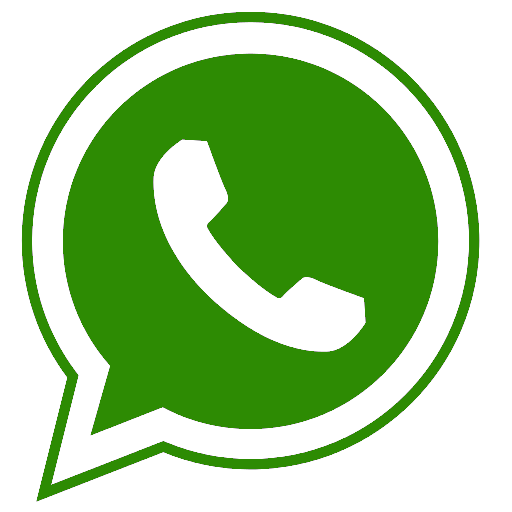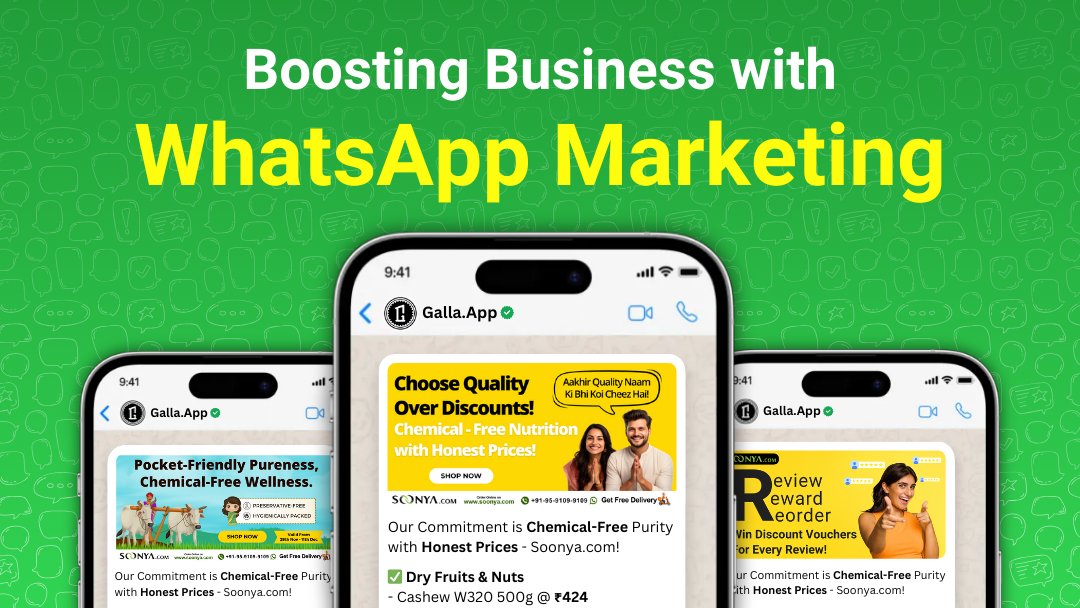Are you confused about how to get started with WhatsApp marketing for your business? Don’t worry this article will guide you on how to get started with whatsapp marketing.
What is WhatsApp marketing?
The use of the WhatsApp messaging app as a marketing tool to connect and interact with potential clients is known as “WhatsApp marketing.” It involves using the various features of WhatsApp, such as sending messages, sharing images, videos, and documents, creating groups, and broadcasting messages to promote products, services, or brands.
WhatsApp marketing allows businesses to directly communicate with their target audience, send personalized messages, provide customer support, send promotional offers, and build brand loyalty. It is a cost-effective and efficient way to engage with customers and drive sales.
Is Whatsapp Marketing Legal?
Yes, Whatsapp Marketing is legal as long as the marketing activity follows the guidelines and regulations set by Whatsapp and the respective local laws and regulations related to digital marketing, privacy, and data protection. It is important to obtain consent from recipients before sending marketing messages and to ensure compliance with spam laws to avoid any legal issues.
Benefits of Whatsapp Marketing
1. Wide Reach: With over 2 billion monthly active users, WhatsApp provides a vast audience for marketers to target and engage with.
2. Direct & Personal Communication: WhatsApp allows marketers to send personalized messages directly to users, creating a more engaging and personal communication experience.
3. Higher Open & Engagement Rates: Compared to traditional marketing channels like email, WhatsApp generally has higher open and engagement rates as messages are more likely to be seen and responded to.
4. Multimedia Content: WhatsApp supports various media formats including images, videos, audio files, and documents, giving marketers the ability to creatively and effectively showcase their products or services.
5. Instant Messaging & Real-Time Engagement: WhatsApp offers real-time messaging, allowing marketers to have instant conversations and provide immediate support or answer customer queries.
6. Cost-Effective: WhatsApp marketing is generally a cost-effective method as businesses can reach a large audience at a minimal cost, especially compared to traditional advertising methods.
7. Rich Analytics & Insights: WhatsApp provides analytics and insights on the performance of marketing campaigns, allowing businesses to track metrics such as message delivery, open rates, and engagement, which can help optimize future marketing efforts.
8. Quick & Easy Opt-Ins: WhatsApp allows users to opt-in to receive marketing messages, ensuring that the audience is interested and receptive to the provided content.
9. Targeted Marketing: Marketers can use WhatsApp’s features like groups and broadcast lists to target specific segments of their audience or create personalized campaigns based on user preferences and demographics.
10. Customer Loyalty & Retention: Through regular communication and valuable content, WhatsApp marketing helps build customer loyalty, resulting in higher customer retention rates and increased customer lifetime value.
How to Use Whatsapp Marketing?
Here are some steps on how to use WhatsApp marketing effectively:
1. Create WhatsApp Business Account: Download the WhatsApp Business app and set up a business profile. Ensure you provide accurate and relevant information about your business.
2. Build Contact List: Start by importing existing customer contacts and then encourage new customers to opt-in to your WhatsApp marketing by providing their phone numbers or scanning a QR code.
3. Segment Your Audience: Categorize your contacts based on their interests, demographics, or purchase history. This will help you send targeted messages and offers.
4. Craft Engaging Content: Create compelling and informative content that will resonate with your audience. Use a combination of text, images, videos, and audio messages to keep your marketing messages interesting.
5. Use WhatsApp Features:Utilize various features offered by WhatsApp, such as broadcast lists, groups, and stories, to engage with your audience. Send updates, offers, product launches, and promotions to keep them informed.
6. Personalize Your Messages: Address your customers by their name and customize your messages based on their past purchases or preferences. This will make your communication more personalized and effective.
7. Provide Customer Support: WhatsApp is not just for marketing; it can also be used for customer support. Encourage your customers to reach out to you for any queries or issues they may have. Provide prompt and helpful responses.
8. Follow Best Practices & Guidelines: Ensure you comply with WhatsApp’s terms of service and data protection regulations. Avoid sending spam or unsolicited messages and respect your customers’ privacy.
9. Analyze & Measure Your Performance: Use WhatsApp’s built-in business tools or third-party analytics platforms to track the performance of your messages. Analyzing metrics like open rates, click-through rates, and conversions will help you optimize your marketing strategy.
10. Test & Refine Your Strategy: Continuously test different approaches and refine your WhatsApp marketing strategy based on the results. Experiment with different content types, timings, and personalization techniques to understand what resonates best with your audience.
Remember, WhatsApp marketing is about building relationships and providing value to your customers. Avoid being overly promotional and focus on building trust and engagement with your audience.
Whatsapp Marketing Best Examples
Here are some examples of successful WhatsApp marketing campaigns:
1. Hellmann’s Brazil: Hellmann’s, the mayonnaise brand, launched a campaign called “WhatsCook” in Brazil. Users could submit photos of the ingredients in their fridge via WhatsApp, and a Hellmann’s chef would respond with a recipe based on those ingredients. This campaign achieved a high level of engagement and helped to increase brand awareness.
2. Absolut Vodka: Absolut Vodka used WhatsApp as a tool to engage with its customers and provide them with personalized cocktail recipes. Users could message Absolut Vodka on WhatsApp and receive customized drink suggestions based on their preferences. This campaign helped to strengthen customer relationships and encourage brand loyalty.
3. Coco-Cola: Coca-Cola launched a WhatsApp marketing campaign in India called “Share a Coke.” Users could send Coca-Cola bottles with personalized messages to their friends and family via WhatsApp. This campaign generated buzz and excitement among WhatsApp users, resulting in increased brand awareness and user engagement.
4. Renault Brazil: Renault Brazil used WhatsApp to launch a scavenger hunt-style campaign called “Capture the Captur.” Participants received clues via WhatsApp, guiding them to different locations where they could take a photo with a Renault Captur car for a chance to win prizes. This campaign successfully created a sense of excitement and encouraged participation.
5. KLM Royal Dutch Airlines: KLM used WhatsApp to provide its customers with flight updates, booking confirmations, and customer service. By using WhatsApp as a communication channel, KLM was able to offer a convenient and personalized experience for its customers, resulting in improved customer satisfaction.
These examples highlight the versatility of WhatsApp as a marketing tool and demonstrate how brands can leverage the app to engage with their audience, provide personalized experiences, and increase brand awareness.
SUMMING UP
WhatsApp marketing has become a popular tool for businesses to connect with their target audience and promote their products or services. With over 2 billion users worldwide, WhatsApp provides a wide reach and a convenient way to engage with potential customers.
One of the key benefits of WhatsApp marketing is its direct and personalized communication. Businesses can send messages, images, and videos, and even make voice and video calls to their customers, ensuring a direct and interactive approach. This personalized interaction helps build customer loyalty and trust.
However, businesses need to be careful about not spamming their customers with excessive messages, as it might lead to annoyance and a negative image for the brand. Hence, it is important to use WhatsApp marketing strategically, providing valuable and relevant content to the customers.

